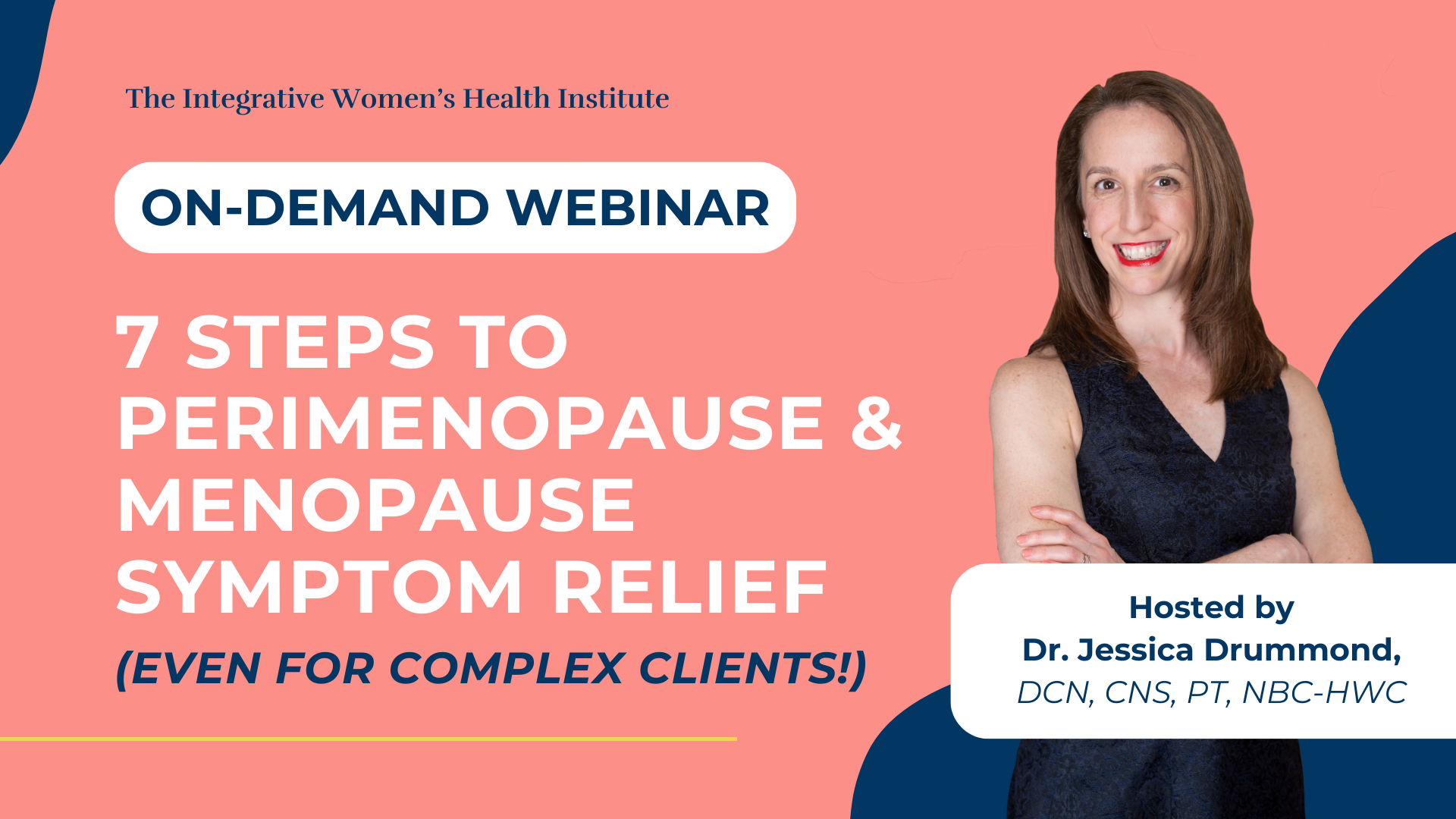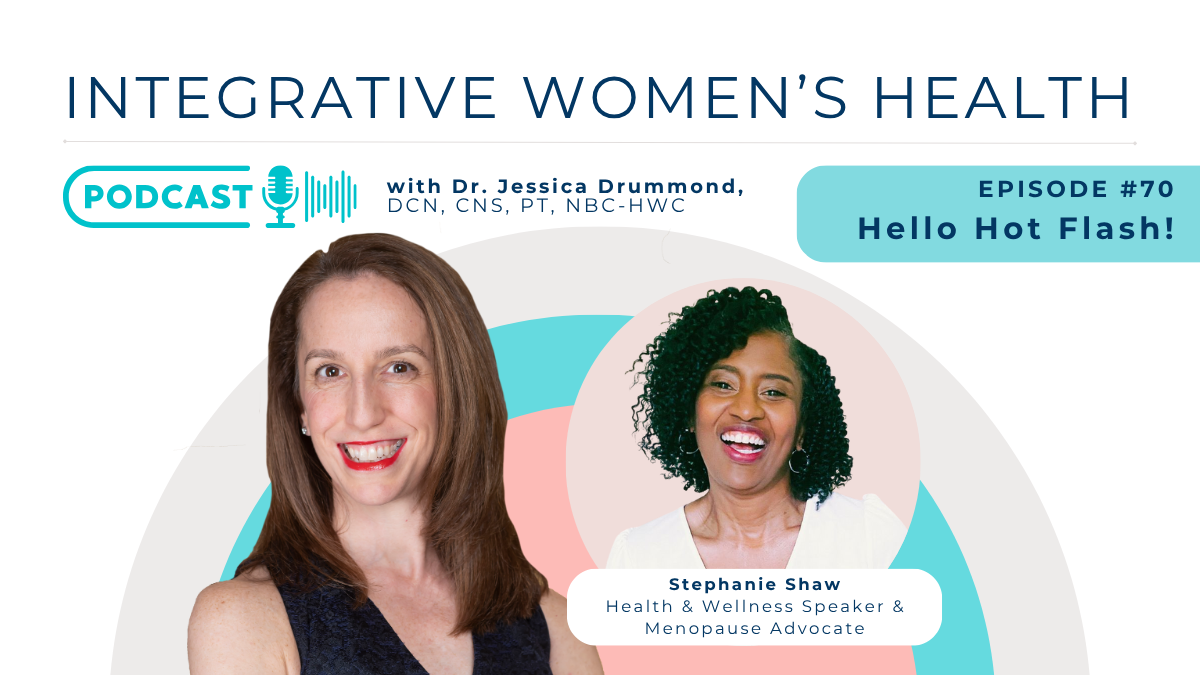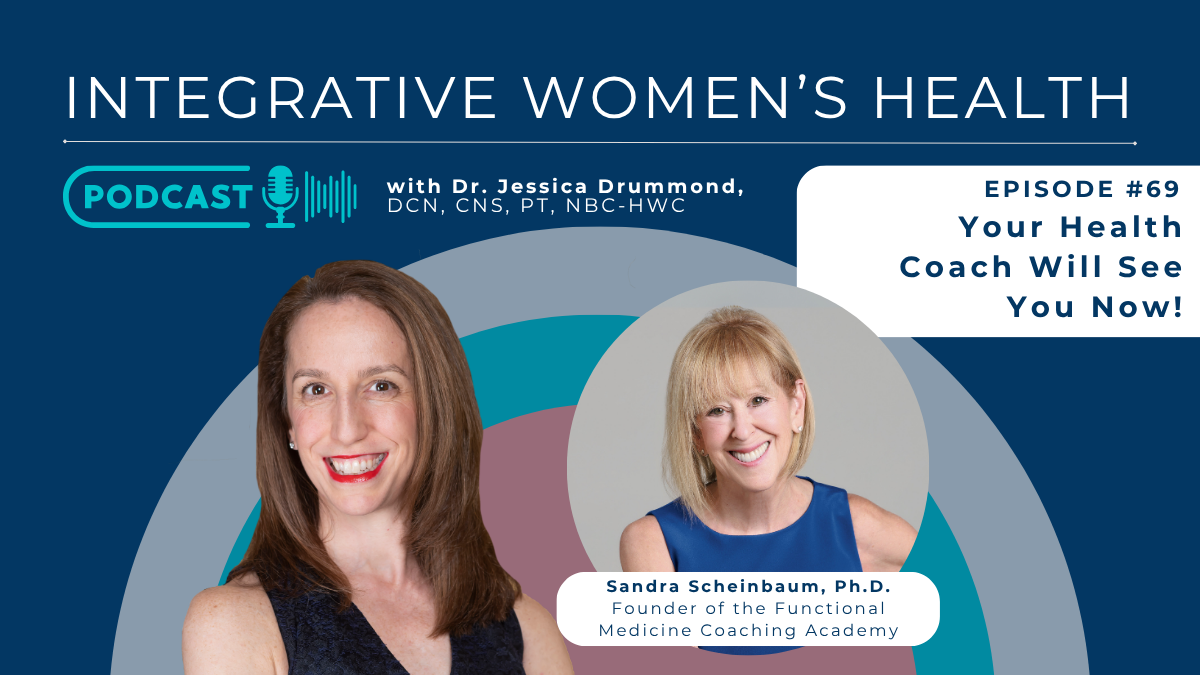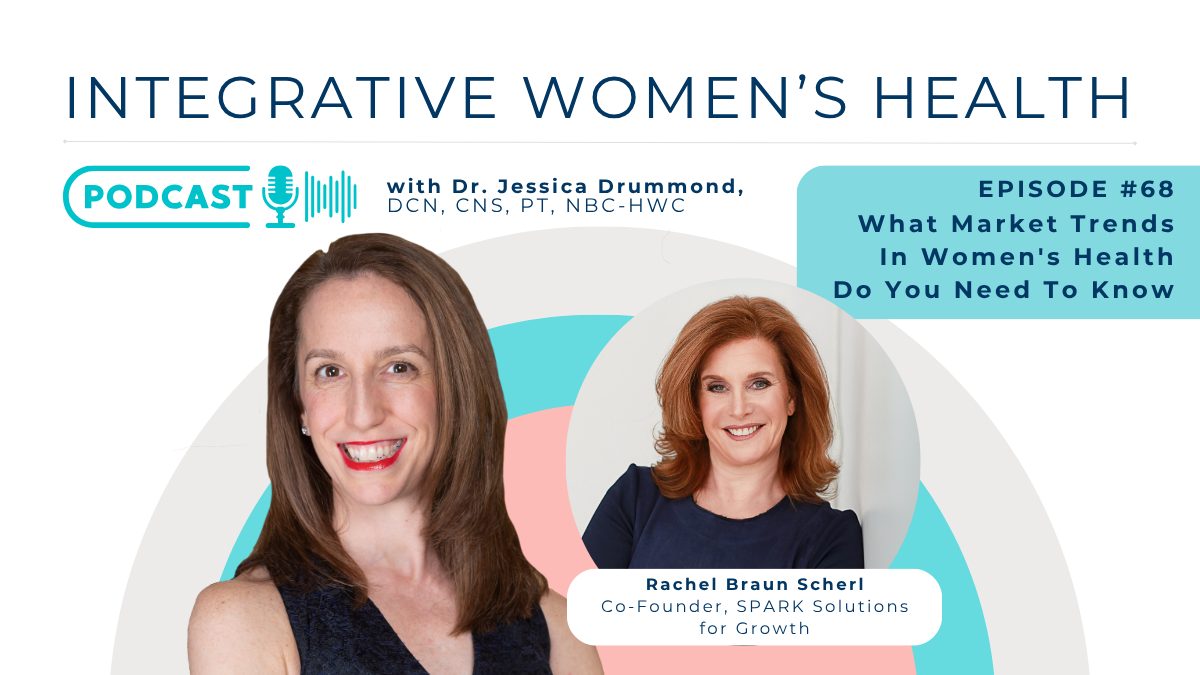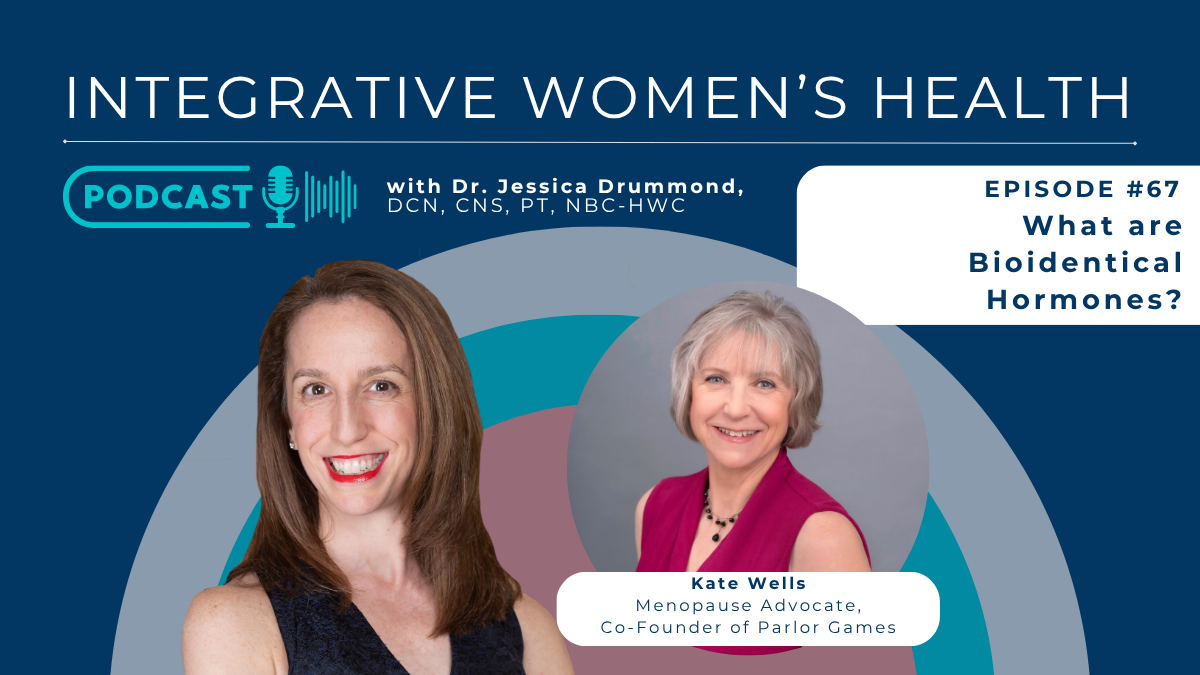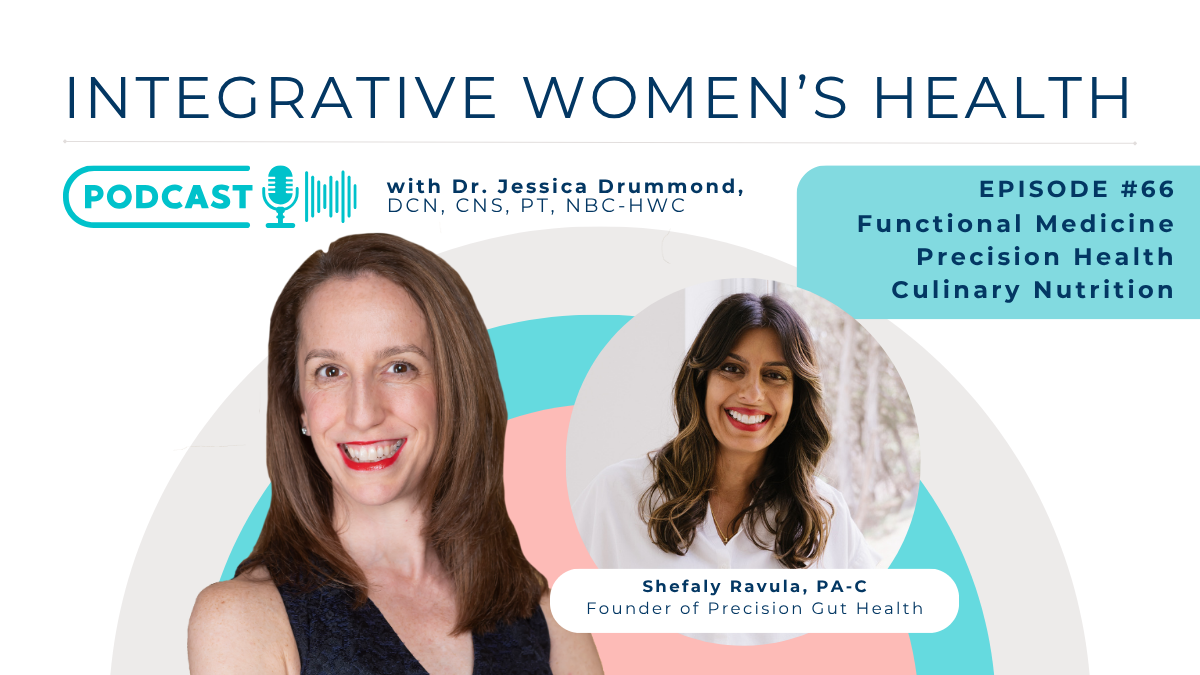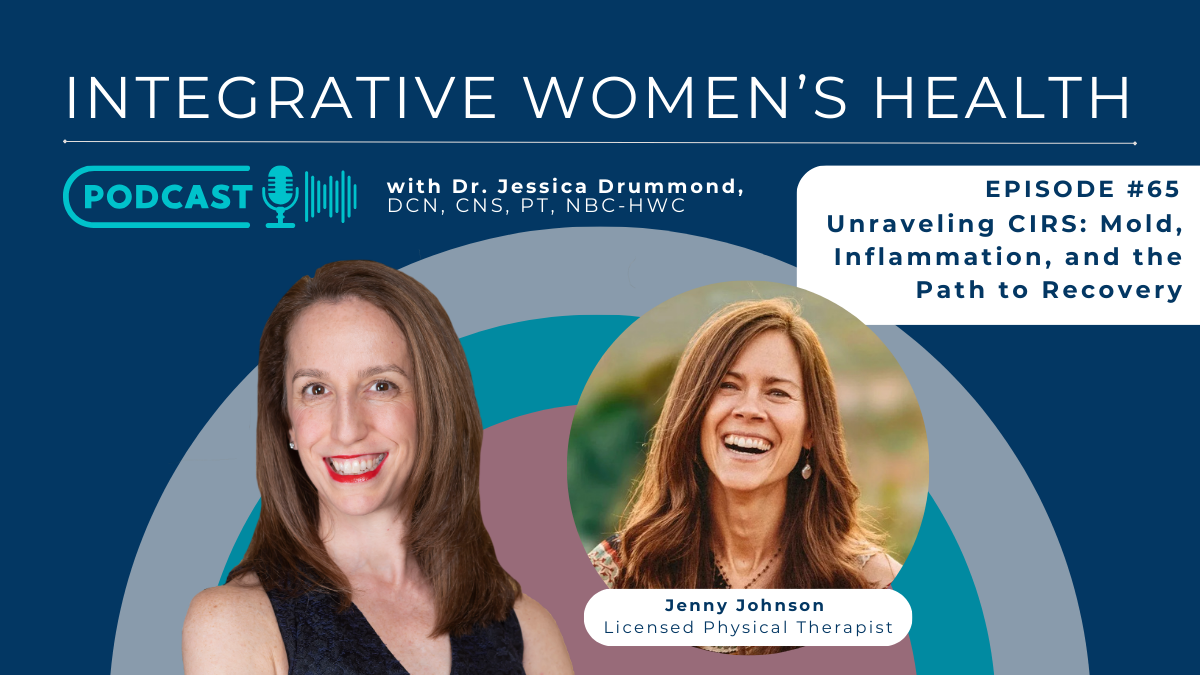When it comes to my clients in their 40s and 50s, I’m not particularly eager to focus on perimenopause weight loss. However, for my clients weight loss is often a welcomed side effect of addressing hormone imbalances, calming the nervous system, and regulating the body’s processes.
I believe there are far more important things to worry about than weight loss when it comes to our health and frankly, our lives. As Glennon Doyle famously said, “Your body is not your masterpiece — your life is.”
However, around age 40, the 10-15 year period of perimenopause begins, and then women transition into menopause.
What is perimenopause?
Perimenopause is the 10-15-year period when menstrual periods become irregular as menopause approaches. While symptoms usually begin in the forties, it’s not unusual for perimenopausal symptoms to start in the thirties.
Perimenopausal women can have difficulty with weight loss and it can affect their health and their lives. Fortunately, I have 7 strategies for perimenopause weight loss that can help improve overall health for 40-55-year-old women.
I prefer to focus on supporting my client’s heart, hormone, bone, and brain health. As well as their mental focus, energy, enthusiasm, sex drive, strength, power, and joy. Often when we focus on these things, weight loss is a welcome side effect.
In fact, in our coaching program, one of our clients lost 12 pounds in 6 weeks. The weight loss was not her goal, it was just a side effect of regaining her morning energy, having decreased pain, and improving her immune health—all benefits of having balanced hormones.
Best of all she felt hopeful and back in control of her health and her energy after feeling like she was sleepwalking through her life for years. Weight is just one small factor when women decide to improve their health.

What To Do To Optimize Perimenopausal Health and Get The Side Effect of Perimenopausal Weight Loss?
Recognize that weight loss resistance is a warning signal for a deeper hormonal imbalance.
When women gain abdominal weight, that is a specific sign that their blood sugar balance and insulin levels are off, and that their estrogen levels are decreasing (Davis, et al., 2012).
Increased abdominal fat gain in people in their 40s and 50s is associated with an increased risk of cardiovascular and metabolic diseases. Associated diseases include type 2 diabetes, heart attacks, strokes, reduction in health-related quality of life, and reduced sexual function.
Implementing lifestyle strategies that increase estrogen, improve insulin sensitivity, and stabilize blood sugar are key to abdominal fat loss in perimenopause.
How to Optimize Estrogen Levels in Perimenopause
1. Exercise Less and Less Intensely
This might sound counterintuitive… exercise less to lose weight?
People with elevated stress hormones such as cortisol or epinephrine can worsen these hormone imbalances by overexercising and exercising too intensely.
When stress hormone levels are dysregulated, sex hormone levels (including estrogen) drop.
2. Balance stress with mindfulness, meditation, prayer, or spending time in nature
Restorative activities are essential to balance the stressors of modern life.
In a randomized controlled trial, mindfulness meditation was associated with a significant reduction in anxiety as measured by the Clinical Global Impression of Severity and Improvement measure and the Beck Anxiety Inventory (Hoge, et al., 2013).
3. Reduce stress by reducing stressors, interactions with stressful people, delegation, and speaking up about work stress
In our coaching practice, my clients are overburdened with the expectations of daily life. Heavy work hours, responsibilities, work-life balance challenges, relationship stress, and hesitation with delegating responsibilities all contributed to burnout.
In the 2017 Women in the Workplace Study, researchers found that on average, 54% of women do all or most of the household work compared to 22% of men. This gap worsens when couples have children.
Partnered women with children are 5.5 times more likely to do a majority of the housework compared to male partners. This disparity continues even when women are primary breadwinners (McKinsey & Company & LeanIn, Women in the Workplace, 2017)
But, it’s not just about doing less. The mental load that women carry adds significant stress to their neuroendocrine systems.
Of the recommendations that I commonly make to our clients, “quieting their minds” is usually the most difficult of all. And, this load has continued to increase since 2020 especially for professional women during the COVID-19 pandemic and beyond (Sharma, & Vaish, 2020).
4. Take Maca
Research indicates that adding maca to your smoothies or supplement regimen has been shown to improve estrogen levels, balance hormones, and reduce perimenopausal symptoms, specifically related to low estrogen, (Lee et al., 2011 & Meissner, et al., 2006).
My personal favorite maca product was created by a gynecologist, Dr. Anna Cabeca, Mighty Maca Plus.
And, if you need something stronger, check out Femmenessence.
If you’re a women’s health professional, understanding hormone balance in perimenopause is key to healthy weight and metabolic health in midlife. This is your opportunity to support your clients with healthy longevity and significantly reduce their risks of the most common killers of women – cardiovascular disease, cancer, and osteoporosis.
Want to learn more about managing hormones in perimenopause? Check out The Perimenopause and Menopause Certificate Program here.
Stress hormones, nervous system regulation, thyroid function, and reproductive hormones all play important roles in perimenopausal and menopausal symptoms, including: pelvic pain, chronic pain, insomnia, fertility issues, hot flashes, weight loss resistance, fatigue, hair loss, dryness, and more.
Join Dr. Jessica Drummond, the founder and CEO of the Integrative Women’s Health Institute, for an exclusive webinar designed for health and wellness professionals who aspire to excel in menopausal symptom management.
Dive deep into her proprietary and comprehensive, seven-step approach to managing perimenopause and menopause symptoms, especially for complex cases.
How to Improve Insulin Sensitivity and Blood Sugar Balance in Perimenopause
1. Time Restricted Feeding and Intermittent Fasting.
- Data trends indicate that eating meals at regular intervals, preferably earlier in the day, can help improve weight loss efforts and reduce health risks in perimenopausal women, (Hutchison, et al., 2017 & Nair & Khawale, 2016).
- Intermittent fasting can also reduce cancer risk, improve cancer treatment support, and improve metabolic issues such as PCOS, cardiovascular disease, dementia, brain fog, anxiety, and depression.
2. Low to Moderate carbohydrate, plant heavy nutrition.
- Nutrition plans that emphasize a high intake of vegetables, fiber, healthy fats, and proteins have been shown to improve metabolic risk factors, including insulin resistance and blood sugar instability (Hu et al., 2012).
- Don’t forget to eat a wide variety of colorful plant foods daily. The more variety, the better for the health of the gut microbiome, which is also essential for metabolic health
3. High-Intensity Interval Training. (HIIT) - Women who add HIIT training to their workout program show benefits of improved insulin sensitivity, fat loss, and improved growth hormone levels for building muscle (Boutcher, 2011).
- For most perimenopausal and menopausal women, decreasing the frequency and intensity of exercise is important initially to optimize their nervous system and endocrine system health. This recommendation is for those who have balanced their hormones and built up their stress resilience.
- Having healthy, restored pineal, hypothalamus, pituitary, and adrenal glands are essential in order to healthfully exercise more intensely.
- First, start with mindful cardiovascular exercise, and make sure to integrate recovery strategies to balance higher intensity cardiovascular and strength training workouts. High intensity exercise is important, but needs to be balanced, and needs to be done in bodies with nourished and healthy endocrine systems and mitochondria.
- Understanding hormone balance is key. The stress, thyroid and reproductive hormones all play important roles in perimenopause, pelvic pain, general chronic pain, insomnia, fertility issues, hot flashes, weight loss resistance, fatigue, and more. Don’t add intense exercise to lose weight until these other systems are in balance. (In fact, once the neuro-endocrine system is in balance, intense interval training exercise is rarely needed for weight loss. It’s just for fun!)
Read More Perimenopause and Menopause Blogs
Solutions for Vulvovaginal Atrophy
Exercise and Hormones in Women Over 40
References:
Boutcher, S. H. (2011). High-Intensity Intermittent Exercise and Fat Loss. Journal of Obesity, 2011, 868305. http://doi.org/10.1155/2011/868305
Davis SR, Castelo-Branco C, Chedraui P, Lumsden MA, Nappi RE, Shah D, Villaseca P. (2012) Understanding weight gain at menopause, Climacteric, 15(5), 419-29. doi: 10.3109/13697137.2012.707385.
Hoge, E. A., Bui, E., Marques, L., Metcalf, C. A., Morris, L. K., Robinaugh, D. J., … Simon, N. M. (2013). Randomized Controlled Trial of Mindfulness Meditation for Generalized Anxiety Disorder: Effects on Anxiety and Stress Reactivity. The Journal of Clinical Psychiatry, 74(8), 786–792. http://doi.org/10.4088/JCP.12m08083
Lee MS, Shin BC, Yang EJ, Lim HJ, Ernst E. (2011) Maca (Lepidium meyenii) for treatment of menopausal symptoms: A systematic review, Maturitas, 70(3), 227-33. doi: 10.1016/j.maturitas.2011.07.017.
Meissner, H. O., Mrozikiewicz, P., Bobkiewicz-Kozlowska, T., Mscisz, A., Kedzia, B., Lowicka, A., … Barchia, I. (2006). Hormone-Balancing Effect of Pre-Gelatinized Organic Maca (Lepidium peruvianum Chacon): (I) Biochemical and Pharmacodynamic Study on Maca using Clinical Laboratory Model on Ovariectomized Rats. International Journal of Biomedical Science : IJBS, 2(3), 260–272.
Hutchison, A. T., Wittert, G. A., & Heilbronn, L. K. (2017). Matching Meals to Body Clocks—Impact on Weight and Glucose Metabolism. Nutrients, 9(3), 222. http://doi.org/10.3390/nu9030222
Hu, T., Mills, K. T., Yao, L., Demanelis, K., Eloustaz, M., Yancy, W. S., … Bazzano, L. A. (2012). Effects of Low-Carbohydrate Diets Versus Low-Fat Diets on Metabolic Risk Factors: A Meta-Analysis of Randomized Controlled Clinical Trials. American Journal of Epidemiology, 176(Suppl 7), S44–S54. https://doi.org/10.1093/aje/kws264
Nair, P. M. K., & Khawale, P. G. (2016). Role of therapeutic fasting in women’s health: An overview. Journal of Mid-Life Health, 7(2), 61–64. http://doi.org/10.4103/0976-7800.185325
Sharma, N., & Vaish, H. (2020). Impact of COVID – 19 on mental health and physical load on women professionals: an online cross-sectional survey. Health care for women international, 41(11-12), 1255–1272. https://doi.org/10.1080/07399332.2020.1825441
https://womenintheworkplace.com

